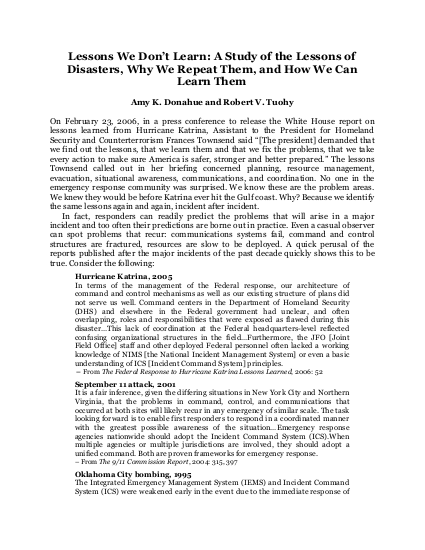
Emergency responders intervene before and during disasters to save lives and property. The uncertainty and infrequency of disasters make it hard for responders to validate that their response strategies will be effective, however. As a result, emergency response organizations use processes for identifying and disseminating lessons in hopes that they and others will be able to learn from past experience and improve future responses. But the term “lessons learned” may be a misnomer. Anecdotal evidence suggests mistakes are repeated incident after incident. It appears that while identifying lessons is relatively straightforward, true learning is much harder – lessons tend to be isolated and perishable, rather than generalized and institutionalized. That we see problems persist is a serious concern; as emergency response missions expand to include broader homeland security responsibilities, the ability to capitalize on experience is ever more important. This article reports the results of a qualitative study of both the lessons themselves and the efficacy of the processes by which responders hope to learn them.